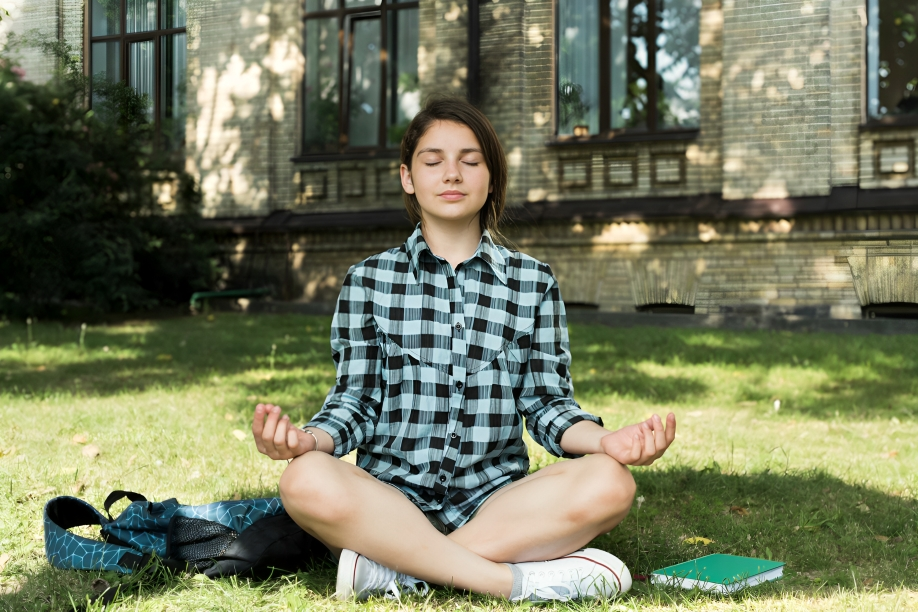Are you feeling overwhelmed, stuck in a daily grind that leaves little room for self-care? Stress is an inevitable part of life, but it doesn’t have to dominate your mental and physical well-being. Learn how to achieve calm and balance with these five powerful stress-reducing techniques. Let’s dive in and discover how simple changes to your daily routine can transform your mental wellness and help you boost your well-being.
Introduction
In today’s fast-paced world, stress has become a common companion for many. Work pressures, family obligations, and unexpected challenges can quickly add up, leaving you feeling overwhelmed. Over time, this constant stress can harm your health, affecting both your mental wellness and physical fitness. So, how can you find relief?
Thankfully, there are various stress management techniques you can adopt to boost your well-being and achieve your fitness goals. From deep breathing to yoga and journaling, integrating these practices into your routine can have profound effects on your overall health. Here, we’ll explore five effective stress-reducing techniques to help you maintain balance and inner peace.
1. Deep Breathing: The Foundation of Relaxation
Deep breathing is a simple yet highly effective way to reduce stress and anxiety. By controlling your breath, you can activate your body’s relaxation response, lowering your heart rate, and easing tension.
How to Practice Deep Breathing:
- Find a quiet space: Sit or lie down comfortably in a peaceful spot.
- Inhale slowly and deeply: Breathe in through your nose, filling your lungs and allowing your abdomen to expand.
- Hold and exhale: Hold your breath for a few seconds, then slowly exhale through your mouth.
- Repeat the cycle: Continue for 5-10 minutes, focusing on your breath.
Incorporating deep breathing into your daily routine can help lower stress levels, improve concentration, and support overall mental wellness.
2. Mindful Meditation: Centering Your Mind and Body
Mindful meditation is about being present and fully engaged with the moment. Regular meditation can help calm your mind, reduce anxiety, and foster a sense of clarity and peace.
How to Incorporate Meditation into Your Day:
- Set aside time daily: Even 5-10 minutes can make a difference.
- Choose a focus point: Pay attention to your breath, a mantra, or even your surroundings.
- Be patient and gentle: If your mind wanders, acknowledge the thought and gently bring your focus back to your breath or mantra.
- Find a comfortable position: Sit or lie down in a relaxed position to help your body and mind settle.
Adding mindful meditation to your daily exercise routine can not only help manage stress but also improve sleep, mood, and concentration.
3. Yoga: A Holistic Approach to Stress Relief
Yoga is more than just stretching or a fitness fad—it’s a holistic practice that connects your body, mind, and spirit. Yoga poses, combined with deep breathing, can enhance flexibility, reduce muscle tension, and help you achieve your fitness goals while simultaneously calming your mind.
Simple Yoga Poses for Stress Reduction:
- Child’s Pose: A resting pose that stretches your back and hips, promoting relaxation.
- Downward Dog: A classic pose that stretches the spine, hamstrings, and shoulders while calming the mind.
- Corpse Pose (Savasana): A relaxation pose typically done at the end of a yoga session to encourage deep breathing and mindfulness.
- Cat-Cow Stretch: Improves spine flexibility while easing tension in your lower back.
Practicing yoga regularly can contribute to both mental wellness and physical health, helping you feel centered and rejuvenated.
4. Journaling: An Outlet for Stressful Thoughts
Writing down your thoughts can serve as a therapeutic release, helping you process emotions and reflect on your experiences. Journaling allows you to get your thoughts on paper, which can often help clarify and reduce stress.
How to Start Journaling for Stress Relief:
- Choose a quiet moment: Set aside a specific time daily to write—morning or bedtime works well.
- Free-write without judgment: Let your thoughts flow freely. Don’t worry about grammar, punctuation, or structure.
- Reflect on positive experiences: Include things you’re grateful for to shift your focus away from negativity.
- Track stress triggers: Reflect on stressful situations and how you managed them, so you can find patterns and solutions.
Journaling is a great tool to support mental wellness by providing a healthy way to process emotions, set goals, and track your stress management journey.
5. Physical Activity: Move to Boost Your Mood
Engaging in physical activity is one of the most effective ways to combat stress. It releases endorphins, improves sleep, and reduces the body’s level of stress hormones. Whether it’s a full gym workout or a simple walk around the block, regular daily exercise has numerous benefits for both mental and physical health.
Tips for Incorporating Physical Activity into Your Routine:
- Find activities you enjoy: Dancing, walking, biking, or even gardening can serve as exercise.
- Start small and stay consistent: Even 10-15 minutes a day can make a difference.
- Combine exercise with nature: Exercising outdoors can enhance the stress-relieving benefits.
- Set realistic goals: Create small, achievable fitness goals to help you stay motivated.
Making physical activity a regular part of your life can not only help you achieve your fitness goals but also greatly reduce stress and anxiety.
Conclusion: A Holistic Approach to Managing Stress
Managing stress doesn’t require drastic life changes; small, intentional habits can make a significant difference. By embracing techniques like deep breathing, mindful meditation, yoga, journaling, and physical activity, you can effectively reduce stress, enhance mental wellness, and boost your well-being.
Stress is a normal part of life, but learning to cope with it is crucial for maintaining overall health. Remember, finding the right stress-reducing practices is a personal journey—experiment with different techniques to see which ones work best for you. Integrating these stress-reducing habits into your daily life can not only help you maintain a balanced state of mind but also improve your physical health.
Begin your journey to better mental wellness and a balanced lifestyle today. Start with just one of these practices, and watch as your stress levels diminish and your sense of peace and well-being grows.




